Homeland Honors Veterans Through Flags for Heroes Event
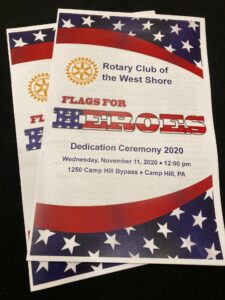
On the 11th hour of the 11th day of the 11th month in 1918, President Woodrow Wilson signed the armistice that ended World War I. The following year, President Wilson led the country in celebrating Armistice Day to reflect upon the heroism of those who died in service to our country during the war. In 1954, Armistice Day became Veterans Day to honor all veterans serving our country.
This year, Homeland Hospice and Homeland Center paid tribute to veterans through Flags for Heroes, a first-time event led by the Rotary Club of West Shore. Homeland is a nonprofit program that serves communities throughout Central Pennsylvania.
From November 8-15, 160 American flags will fly along the Harvey Taylor Bridge Bypass, a busy corridor leading into the City of Harrisburg. Representatives from Homeland Hospice, the Rotary Club of West Shore and members of our community celebrated this inaugural event with a special dedication ceremony on Veterans Day.
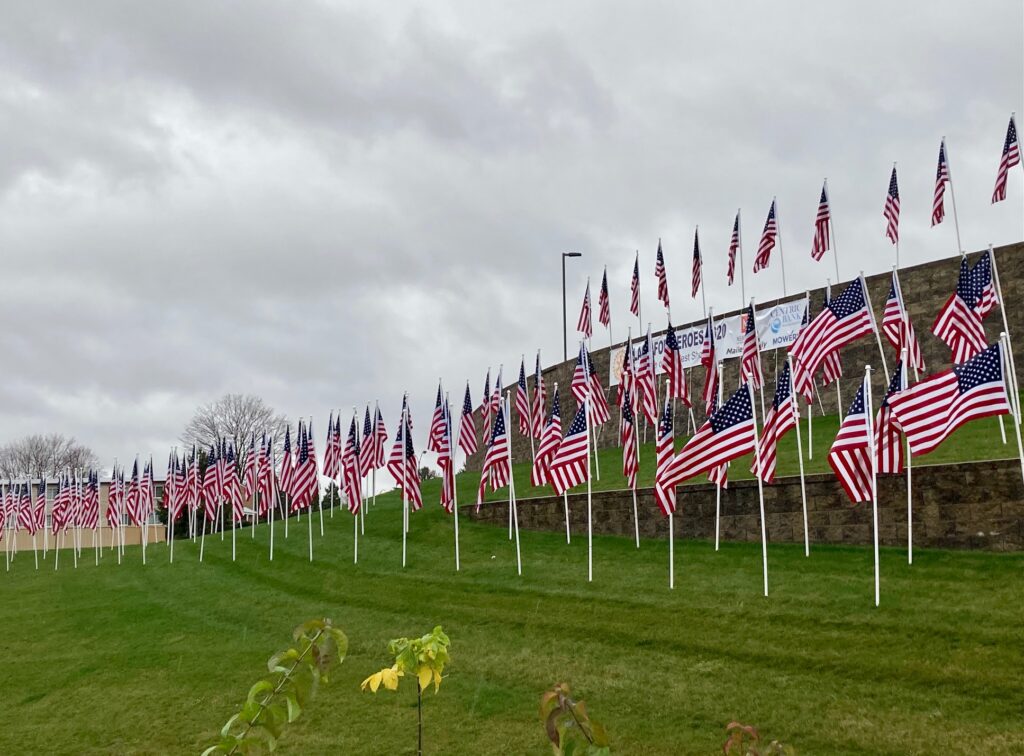 “We want the flags to send a positive message during these challenging times,” says Rod Hite, president of the Rotary Club of West Shore. “We are overwhelmed by the number of community organizations supporting the event.”
“We want the flags to send a positive message during these challenging times,” says Rod Hite, president of the Rotary Club of West Shore. “We are overwhelmed by the number of community organizations supporting the event.”
For Rod and his fellow Rotarians, the challenges of the COVID-19 pandemic have shed light on the heroism of front-line workers like doctors, nurses and other caregivers. Through this year’s event, flags could be sponsored in honor of someone who has made a difference during the pandemic as well as a veteran for his/her service to our country.
“Rotary and Homeland share similar values,” Rod adds. “We have great love and respect for our community and country.”
For Homeland Hospice, honoring veterans is part of the organization’s core values. For more than eight years, Homeland has been part of the We Honor Veterans program, created by the National Hospice and Palliative Care Organization (NHPCO) in collaboration with the Department of Veterans Affairs (VA).
Through the We Honor Veterans program, hospice volunteers who served in the military meet with veterans during their end of life journey. Patients are given a special pin, which represents their branch of service, as well as a small flag and certificate. The pinning ceremony ends with a salute, veteran to veteran. In this special moment of time, the patient can experience the proud memory of his/her first salute and the love and respect of an entire country.
While the COVID-19 pandemic has limited the number of volunteers who can visit patients, Homeland has kept the We Honor Veterans program strong with a smaller contingent of people participating in the pinning ceremony.
“Veterans hold a special place in our hearts and minds,” says Myra Badorf, B.A., Assistant Director of Development at Homeland Hospice. “We’re proud to serve as a sponsor and partner of this outstanding community event.”
For more information about the We Honor Veterans program visit www.WeHonorVeterans.org.
To learn more about Homeland’s work with this program, call Homeland Hospice at (717) 221-7890.

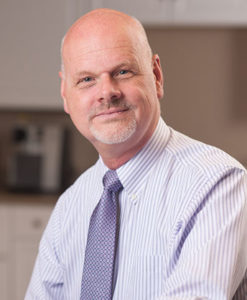 At the end of October, Brian Medkeff-Rose, M.Div., M.A., Bereavement Counselor at Homeland Hospice, will retire after more than 28 years of compassionate leadership. During his time with Homeland, Brian has implemented innovative approaches to reaching and supporting the bereaved. His deep well of empathy and support has helped countless people find new purpose amidst the pain of loss.
At the end of October, Brian Medkeff-Rose, M.Div., M.A., Bereavement Counselor at Homeland Hospice, will retire after more than 28 years of compassionate leadership. During his time with Homeland, Brian has implemented innovative approaches to reaching and supporting the bereaved. His deep well of empathy and support has helped countless people find new purpose amidst the pain of loss.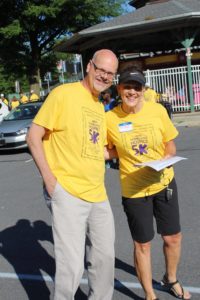 new immediately Homeland was where I belonged,” Brian says. “I’ve been proud to be part of a team approach to care. Social workers, physicians, nurses’ aides, volunteers – we have all worked together to help those in need.”
new immediately Homeland was where I belonged,” Brian says. “I’ve been proud to be part of a team approach to care. Social workers, physicians, nurses’ aides, volunteers – we have all worked together to help those in need.”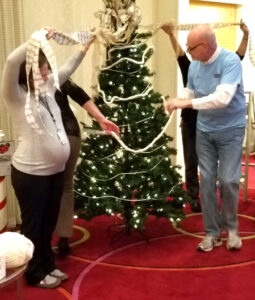 “We never stop grieving,” Brian says. “The amount of time since the death of your loved one does not matter. It’s always okay to cry.”
“We never stop grieving,” Brian says. “The amount of time since the death of your loved one does not matter. It’s always okay to cry.”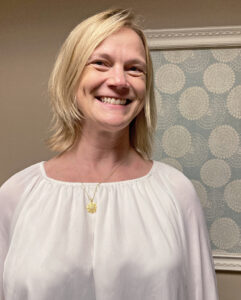 Homeland Hospice, a nonprofit hospice program that serves communities throughout Central Pennsylvania, has been selected to participate in the alpha testing phase of a new tool to standardize the collection of data for hospice patients. Homeland is one of 20 hospice programs chosen nationally, and the only hospice in the state participating in the project.
Homeland Hospice, a nonprofit hospice program that serves communities throughout Central Pennsylvania, has been selected to participate in the alpha testing phase of a new tool to standardize the collection of data for hospice patients. Homeland is one of 20 hospice programs chosen nationally, and the only hospice in the state participating in the project.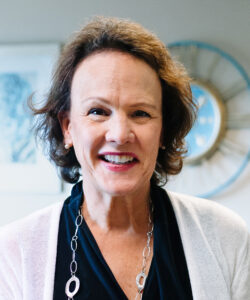 Myra Badorf is the Assistant Director of Development for Homeland Hospice and on August 16th celebrated her 10-year anniversary. Upon looking back, she shares her thoughts with us.
Myra Badorf is the Assistant Director of Development for Homeland Hospice and on August 16th celebrated her 10-year anniversary. Upon looking back, she shares her thoughts with us.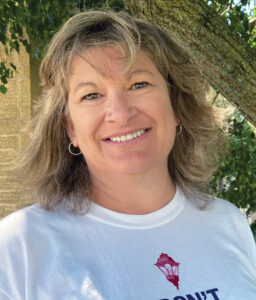 The end-of-life journey is a time when extra comfort and support is needed as patients and their families are often fatigued physically, emotionally and spiritually. A hospice caregiver is often faced with situations that can change daily or even hourly. Frequent medications, dressing changes, safety, toileting, feeding, and emotional support easily fills their day, and in many cases, their night too. In addition, there are situations in which a spouse or caregiver may never have prepared a meal. The patient is the one who always handled that daily task.
The end-of-life journey is a time when extra comfort and support is needed as patients and their families are often fatigued physically, emotionally and spiritually. A hospice caregiver is often faced with situations that can change daily or even hourly. Frequent medications, dressing changes, safety, toileting, feeding, and emotional support easily fills their day, and in many cases, their night too. In addition, there are situations in which a spouse or caregiver may never have prepared a meal. The patient is the one who always handled that daily task. Some of our volunteers simply cook a little extra when they are preparing a meal for their own family. Church group often use the left-overs from a community or church meal to make a yummy dish or soup.
Some of our volunteers simply cook a little extra when they are preparing a meal for their own family. Church group often use the left-overs from a community or church meal to make a yummy dish or soup.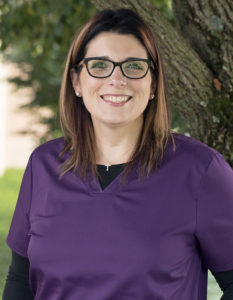 She was the type of old lady I want to be. She was sassy and opinionated. Mostly confused but, had moments of crystal lucidity. Her eyes were set on a fellow resident and no amount of reasoning could dissuade her that this was going to be her boyfriend. She loved Diet Coke, but, fountain only please… Her accomplishments were many in life during a time when such feats were limited to those with an Adam’s apple.
She was the type of old lady I want to be. She was sassy and opinionated. Mostly confused but, had moments of crystal lucidity. Her eyes were set on a fellow resident and no amount of reasoning could dissuade her that this was going to be her boyfriend. She loved Diet Coke, but, fountain only please… Her accomplishments were many in life during a time when such feats were limited to those with an Adam’s apple.
